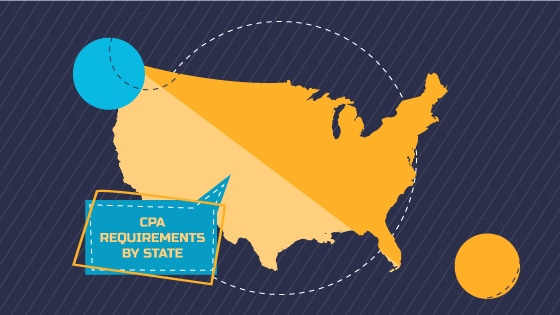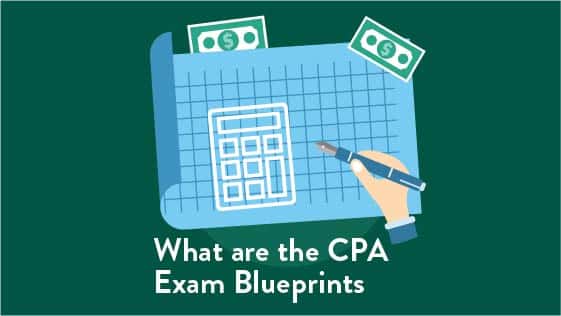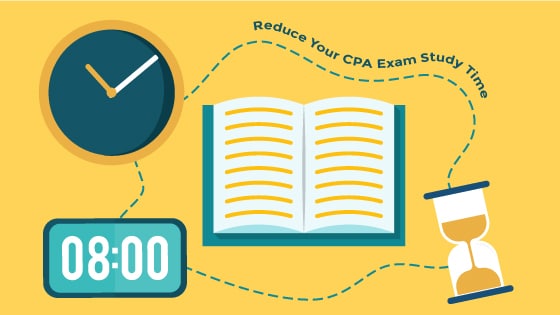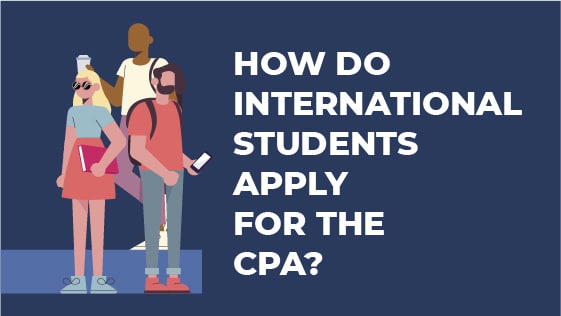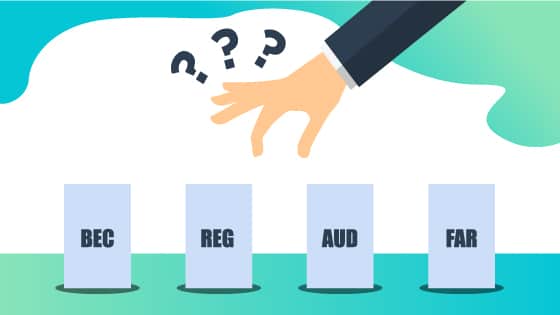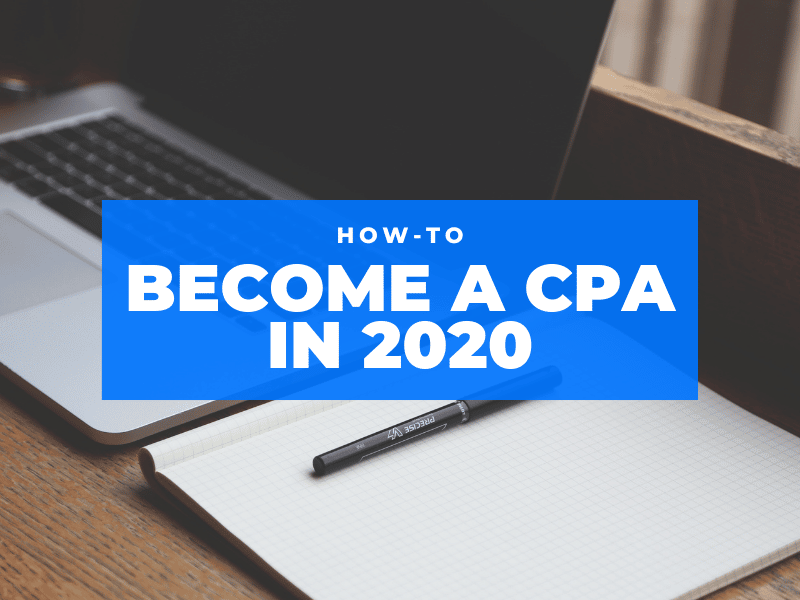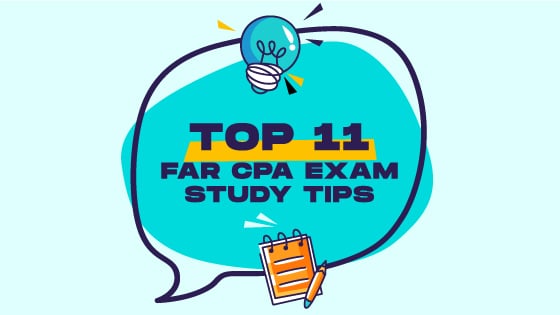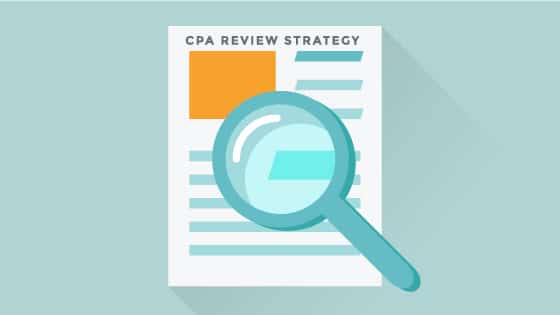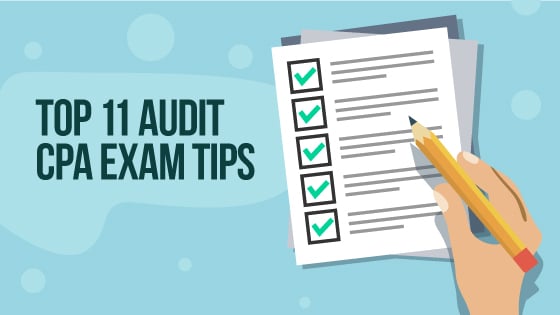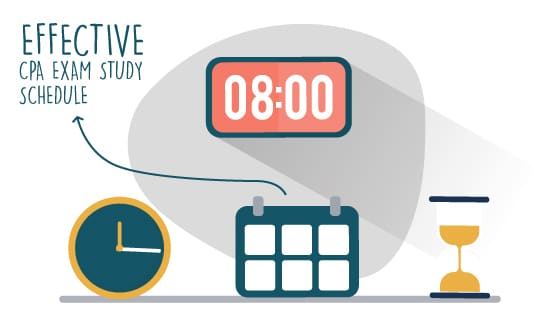Are you considering the CPA exam?
Here’s an intriguing perspective:
The AICPA’s 2023 Trends Report has revealed a significant decrease in accounting graduates. But, this isn’t necessarily bad news for aspiring CPAs like you. In fact, this trend could be your opportunity to shine in a field with less competition and more job openings.
But there’s more:
Despite the current decline, the Bureau of Labor Statistics forecasts a 4% growth in employment for accountants and auditors from 2022 to 2032. That’s about as fast as the average for all occupations, with an estimated 126,500 openings projected each year over the decade.
So, what does this mean for you as a CPA candidate? It means that not only is there an anticipated increase in demand for accounting professionals, but also, with the current decline in graduates, you’re stepping into a market that’s ripe with opportunities. The CPA certification could be your key to unlocking these opportunities. Let’s dive into how you can leverage this trend to your advantage and successfully navigate the CPA exam. Ready to explore this path? Let’s get started!
Importance of CPA Certification
Achieving CPA certification is more than just passing an exam; it’s a gateway to career advancement and recognition in the field of accounting. CPAs are regarded as trusted financial advisors and are often sought after for their expertise in auditing, tax preparation, and financial planning. The certification can lead to higher salaries, better job opportunities, and a broader range of career options within the accounting profession.
Understanding the CPA Exam
The CPA exam is a comprehensive and rigorous assessment, pivotal for anyone aspiring to become a Certified Public Accountant. It is structured into four distinct sections, each designed to evaluate different skill sets and knowledge areas essential in the accounting profession. Here’s a brief overview of each section:
Auditing and Attestation (AUD)
This section assesses your understanding of the auditing process, including the principles and procedures for auditing financial statements, internal controls, and compliance with regulatory frameworks. It tests your ability to evaluate evidence, understand proper documentation, and prepare audit reports. The AUD section is crucial for those aiming to work in audit-related fields, as it ensures a thorough understanding of audit standards and practices.
Business Environment and Concepts (BEC)
BEC covers a wide range of topics related to the business environment and basic business concepts. This includes corporate governance, economic concepts, financial management, information technology, and operations management. This section is unique as it integrates general business knowledge with accounting principles, emphasizing the accountant’s role in strategic planning and decision-making within a business context.
Financial Accounting and Reporting (FAR)
FAR is focused on financial accounting and reporting. It tests your knowledge of Generally Accepted Accounting Principles (GAAP), including the preparation, analysis, and reporting of financial statements. This section also covers accounting for governmental entities and non-profit organizations. FAR is critical for accountants who will be involved in preparing and analyzing financial statements, ensuring they have a comprehensive understanding of accounting standards and reporting requirements.
Regulation (REG)
The REG section evaluates your knowledge of federal taxation, ethics, professional and legal responsibilities, and business law. It includes topics such as federal taxation of individuals, corporations, and partnerships, as well as understanding the legal implications of business transactions. This section is particularly important for accountants who will provide tax advice or prepare tax returns, as well as those who need to understand the legal aspects of business and financial transactions.
Each of these sections is designed to test the depth and breadth of knowledge required for a CPA, ensuring that certified professionals are well-equipped to handle the diverse challenges they will encounter in their accounting careers. The CPA exam, therefore, not only assesses technical accounting skills but also evaluates critical thinking, problem-solving, and ethical decision-making abilities.
Preparing Your CPA Exam Strategy
Setting Realistic Goals
When it comes to the CPA exam, a one-size-fits-all approach doesn’t work. It’s essential to assess your individual strengths and weaknesses and set goals that are realistic for you. For instance, if you’re already proficient in corporate taxation, you might not need to spend as much time on the REG section, which focuses on federal taxation, ethics, and business law. Conversely, if you find financial accounting challenging, it would be wise to allocate more study hours to the FAR section, which deals with financial reporting and accounting standards. A balanced approach might involve setting weekly targets for each section based on your proficiency, ensuring that you cover all areas while focusing more on your weaker subjects.
Time Management Techniques
Mastering time management can significantly boost your chances of passing the CPA exam. The Pomodoro Technique, involving 25-minute focused study sessions followed by 5-minute breaks, is excellent for maintaining high levels of concentration without feeling overwhelmed. Additionally, creating a detailed study schedule that breaks down your preparation into daily or weekly tasks can help you track your progress and stay on course. This schedule should include specific topics to cover, practice tests, and review periods, ensuring that you’re consistently moving towards your goal without cramming or last-minute rushes.
Comprehensive Study Materials
Choosing the Right Resources
The choice of CPA prep courses can greatly influence your exam preparation. For a comprehensive understanding of all exam topics, resources like Becker’s CPA Review are invaluable. Becker’s package typically includes detailed video lectures that explain complex concepts in an accessible manner, a vast array of practice questions that mimic the style and difficulty of the actual exam, and full-length simulated exams that provide a real-time testing experience. These resources are designed to give you a deep and thorough understanding of the exam content, equipping you with the knowledge and confidence needed to tackle the exam effectively.
Here are my top picks of other CPA courses where you can see my full detailed reviews.
Utilizing Online Platforms
In today’s digital age, online platforms like Wiley CPAexcel offer a flexible and interactive approach to CPA exam preparation. These platforms are particularly beneficial for those who need a more adaptable study schedule. Features like adaptive learning technology assess your performance and tailor the study material to focus on areas where you need the most improvement. This personalized approach ensures that you spend time efficiently, focusing on your weak points while reinforcing your strengths. Additionally, online forums and discussion boards available on these platforms provide a community of support where you can share tips, ask questions, and learn from other candidates’ experiences.
Exam Day Strategies
Preparation and Mindset
The day of the CPA exam is a culmination of your hard work and preparation. Start by ensuring you have everything you need for the exam, including your Notice to Schedule (NTS), two forms of identification, and any allowed materials. It’s also crucial to know the location of your testing center and have a plan for getting there on time, considering factors like traffic and parking.
On the morning of the exam, engage in a routine that sets a positive tone for the day. This might include a light exercise, a healthy breakfast, and some relaxation techniques like deep breathing or meditation to calm any nerves.
During the Exam
Once the exam begins, time management is key. Quickly skim through the exam to gauge the question types and difficulty levels. Start with questions you are most confident about to secure those points early and build momentum. For longer, more complex problems, keep an eye on the clock and don’t spend too much time on any single question.
Remember to take short, strategic breaks if you feel overwhelmed or stuck. A brief pause can help reset your focus and reduce anxiety.
Post-Exam Review
After completing a section, take a moment to review your answers if time permits. Ensure that you have answered every question, as there is no penalty for guessing, and double-check your calculations and reasoning for complex problems.
CPA Exam Retake Strategies
Failing a section of the CPA exam can be disheartening, but it’s a hurdle many candidates face and overcome. Developing a strategic approach for a retake is crucial to turn this setback into a stepping stone for success.
Analyzing Your Score Report
Begin by thoroughly analyzing your score report. The AICPA provides a breakdown of your performance in different content areas, which can be invaluable in pinpointing where you fell short. Identify the sections where your scores were weakest; these are the areas you’ll need to focus on most in your retake preparation.
Revamping Your Study Plan
Based on your score analysis, adjust your study plan. Allocate more time to the weaker areas, but don’t completely neglect the sections you performed well in. It’s about striking a balance between reinforcing your strengths and improving your weaknesses.
Consider changing your study methods if your previous approach didn’t yield the desired results. For instance, if self-study wasn’t effective, you might benefit from joining a study group or enrolling in a CPA review course for more structured guidance.
Practicing Under Exam Conditions
Practice is key, especially under conditions that mimic the actual exam. Take full-length practice exams in a timed setting to build your stamina and improve your time management skills. Pay special attention to the types of questions you previously struggled with, and practice them until you feel confident.
Seeking Feedback and Support
Don’t hesitate to seek feedback and support. This can come from a mentor, a CPA review instructor, or peers who have successfully passed the CPA exam. They can offer valuable insights, tips, and moral support.
Staying Updated
If there’s a significant gap between your initial attempt and your retake, ensure you’re up-to-date with any changes in the CPA exam content or format. Review the latest study materials and practice questions to align your preparation with the current exam standards.
Maintaining a Positive Mindset
A positive mindset is crucial during your retake preparation. Understand that failing a section of the CPA exam is not uncommon and doesn’t define your capabilities as a future CPA. Stay focused on your goal, and maintain a balanced lifestyle with adequate rest, exercise, and leisure activities to keep stress at bay.
Utilizing Your Experience
Finally, use your experience of taking the exam to your advantage. You’re now familiar with the exam environment and what to expect, which can help alleviate anxiety and improve your performance in the retake.
CPA Exam Taking Tips
“The best way to study is to use the material that works best with your learning style. For instance, Roger has GREAT lectures if you’re auditory. If you’re more visual, maybe Wiley or Becker would be better. And then just hammer MCQs and take notes on what you get wrong.” Reddit
“Start by writing A, B, C, D, E on your scratch paper, and just start eliminating choices. Develop this method while studying for the exam. You’ll find that more often than not, you can eliminate 2 choices right off the bat which significantly increases your odds of getting the question right.” Reddit
“Read your summary notes one to three times the day of your exam and pray. Be sure to utilize your exam break. During the break, use the bathroom and eat a snack. I always brought a protein bar and a Gatorade.” Reddit
“Be really focused during study time. I used the Pomodoro Technique and found it to be super helpful. Listen to all the lectures on double speed, take notes, then hammer MCQs. I didn’t do any SIMs until the review phase.” Reddit
“Don’t memorize everything, make sense of them first. See every missed question as a learning opportunity. There is a reason why you missed it. It could be a lack of understanding or a silly mistake. Figure it out and learn from it.” Reddit
10 Tips from a CPA Expert
As a seasoned CPA and expert in exam preparation, I’ve navigated the challenging waters of the CPA exam and emerged successfully. Drawing from my personal experience, here are my top 10 tips to help you conquer this exam:
- Understand the Exam Structure Thoroughly: Before diving into studying, make sure you fully understand the CPA exam’s format. Familiarize yourself with the four sections (AUD, BEC, FAR, REG) and their content breakdown.
- Create a Customized Study Plan: Your study plan should reflect your strengths and weaknesses. Allocate more time to sections you find challenging and ensure your plan is realistic and manageable.
- Use a Variety of Study Materials: Don’t rely on just one type of study material. Combine video lectures, reading materials, and practice questions to enhance your learning experience.
- Practice with Purpose: When tackling practice questions, focus on understanding why an answer is correct. This approach helps deepen your understanding and prepares you for different question formats.
- Simulate Exam Conditions: Regularly take practice exams under timed conditions. This practice will help you manage time effectively and reduce exam day anxiety.
- Stay Updated on Exam Changes: The CPA exam can undergo changes. Stay informed about any updates or modifications to ensure your study material is current.
- Teach What You Learn: Explaining concepts to others is a great way to reinforce your understanding. Whether it’s a study group or a family member, teaching can solidify your knowledge.
- Take Care of Your Well-being: Don’t neglect your physical and mental health. Regular exercise, a balanced diet, and adequate sleep are crucial during your exam preparation.
- Seek Support When Needed: Don’t hesitate to reach out for help. Whether it’s a mentor, a tutor, or fellow CPA candidates, a support system can provide guidance and motivation.
- Stay Positive and Resilient: The journey to becoming a CPA is demanding. Maintain a positive attitude, learn from your setbacks, and stay committed to your goal.
Remember, passing the CPA exam is not just about hard work; it’s about smart work and strategy. With these tips, I hope to guide you towards a successful CPA journey. Stay focused, stay determined, and you’ll be well on your way to joining the ranks of Certified Public Accountants.
CPA Exam Statistics and Trends
The CPA exam is a dynamic and evolving field, with various statistics and trends that can provide valuable insights for candidates. Here are some key statistics and trends for the CPA exam.
- CPA Exam Pass Rates: Historically, the CPA Exam pass rates average around 45-55%, varying by quarter and section. The pass rates for each section of the CPA exam over the last four quarters ranged from 45% to 63%, with the highest pass rate witnessed in the BEC (Business Environment and Concepts) section.
- Trends in CPA Exam First-Time Pass Rate: The first-time pass rate for the CPA Exam is around 25% historically. This data shows some interesting trends over the past five years.
- 2023 Trends in Accounting Education and CPA Exam: The AICPA’s 2023 Trends Report shows a significant decrease in accounting graduates, but university accounting departments foresee an increase in the future. This report is broken down into three major sections: trends in supply, trends in demand, and CPA Exam candidate data.
- Decline in CPA Exam Candidates: There has been a noticeable decrease in CPA exam candidate numbers, as highlighted in the 2023 AICPA Trends report. This trend could impact the accounting profession in various ways, according to accounting website Going Concern.
- Expectations for CPA Staffing in Firms: Despite the decline in accounting graduates, 60% of surveyed firms expect to have the same or higher number of CPAs on staff in 2023 compared to 2022. This trend indicates a stable or growing demand for CPAs in the industry, according to INSIDEPublicAccounting.
Conclusion
The path to CPA certification is a rigorous but rewarding endeavor. It demands dedication, strategic preparation, and resilience. Remember, each step of this journey, from meticulous study planning to overcoming exam challenges, is a building block towards your professional growth. The CPA designation is not just an academic achievement; it’s a milestone that opens doors to diverse career opportunities and marks you as an expert in the accounting field. Stay focused, adapt to changes, and maintain a balanced approach to your studies and well-being. With persistence and the right mindset, you’ll soon join the esteemed ranks of Certified Public Accountants, ready to make a significant impact in the world of finance and beyond.
The CPA exam consists of four sections: Auditing and Attestation (AUD), Business Environment and Concepts (BEC), Financial Accounting and Reporting (FAR), and Regulation (REG).
Most candidates need 300-400 hours of study time. It’s recommended to allocate 80-100 hours of study for each section of the exam.
A combination of comprehensive study materials, practice exams, and a consistent study schedule tailored to your learning style is the best approach.
Yes, you can take the sections in any order you prefer. However, it’s advisable to start with the section you feel most confident about.
The passing score for each section of the CPA exam is 75 on a scale of 0 to 99.
The CPA exam is offered during four testing windows each year: January-February, April-May, July-August, and October-November.
Yes, each section of the CPA exam includes a standardized 15-minute break that doesn’t count against your exam time.
If you fail a section, you can retake it in the next testing window. It’s important to review your score report to focus your studies on weaker areas.
Once you pass the first section, you have 18 months to pass the remaining three sections.
Yes, many candidates successfully balance full-time work with studying. It requires effective time management and a disciplined study schedule.
To begin your CPA exam application process, first verify your eligibility according to your state’s Board of Accountancy requirements. After confirming your eligibility, submit your academic transcripts and fill out the CPA exam application form provided by your state board.
Bryce Welker is a regular contributor to Forbes, Inc.com, YEC and Business Insider. After graduating from San Diego State University he went on to earn his Certified Public Accountant license and created CrushTheCPAexam.com to share his knowledge and experience to help other accountants become CPAs too. Bryce was named one of Accounting Today’s “Accountants To Watch” among other accolades. As Seen On Forbes
